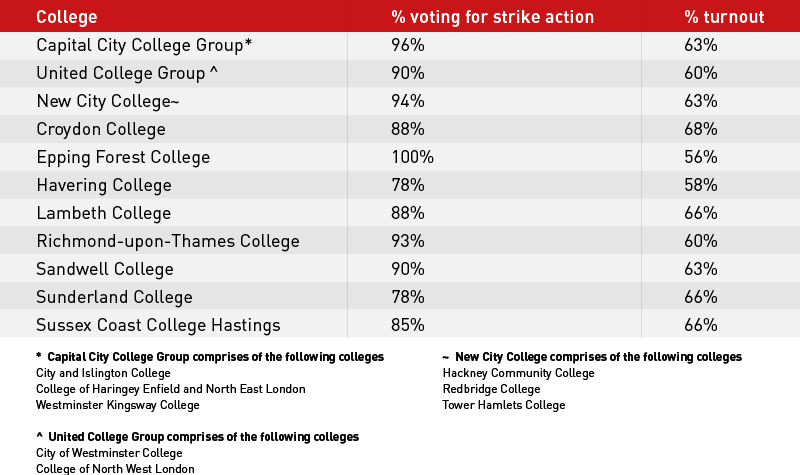Delivered this afternoon from Derby College, here’s the PM speech in full and checked against delivery.
I took my very first steps into elected politics as a local councillor, in south London.
For two years I was the chairman of the education authority in Merton.
It was an experience I will never forget.
I saw how vital good schools and colleges are to a community.
How the hopes and aspirations which parents have for their children…
…and which young people have for their futures…
…are bound-up with the quality of education on offer.
And here in this fantastic setting…
…in a building from Derby’s proud past, which today is helping to define a fantastic future for this city and county as part of Derby College…
…the immense value of great local institutions, providing people with an education that truly works for them, is clear.
I drew on my experiences in south London when I first became an MP, and made my maiden speech in Parliament on the subject education in 1997.
I said then that the aim of education policy should be to ‘provide the right education for every child’.
That ‘for some children that will be an education that is firmly based in learning practical and vocational skills. For others, it will be an education based on academic excellence.’
A lot has changed in the last 20 years, but that core principle…
…that the needs of every child and every young person deserve to be met…
…still drives my vision of the education system our country needs.
And the need for such a system has never been greater.
First, because the new technologies which are shaping the economy of the future will transform the world of work and demand new knowledge and skills in the decades ahead.
Technologies like artificial intelligence, biotech and new advances in data science have the potential to drive up living standards and open new possibilities for human achievement and personal fulfilment.
But if we are to seize those opportunities…
…if we are to make Britain a great engine room of this technological revolution in the twenty-first century…
…we need to make the most of all of our talents.
The sixth form students I met at Featherstone High School in Southall this morning, and the young people studying here at Derby College, will be starting their careers in the new economy of the 2020s and 2030s.
To give them the skills they need to succeed, we need an education and training system which is more flexible and more diverse than it is today.
One which enriches their lives with knowledge, gives each of them a great start in life, and is there for them when they need it.
And there is another reason why we must act now to deliver that education system that truly works for everyone.
Because the Britain of the 2020s will be a Britain outside of the European Union, pursuing a new course in the world.
I want the Britain which those young people will be living in to be a self-confident, outward-looking Britain.
The best friend and ally of our EU partners.
But also a Britain which is out in the world, forming even closer ties with friends and allies right across the globe.
We will learn together, collaborating in research which makes new scientific breakthroughs and improves our understanding of the world.
We will trade together, spreading opportunity and prosperity ever more widely.
And we will stand together in support of the shared values which unite Britain with so many other likeminded countries – in Europe yes, but across the world too.
To become that Britain…
…where a thriving economy drives up living standards and creates greater security and opportunity for everyone…
…and where the prosperity which economic growth generates is more fairly shared in our society…
…we need education to be the key that unlocks the door to a better future.
Through education, we can become a country where everyone, from every background, gains the skills they need to get a good job and live a happy and fulfilled life.
To achieve that, we must have an education system at all levels which serves the needs of every child.
And if we consider the experience which many young people have of our system as it is, it is clear that we do not have such a system today.
CHALLENGES WE FACE
Imagine two children currently in secondary school and thinking about their futures.
One is a working class boy from here in Derby.
He aspires to a career as a lawyer, but he doesn’t have a social network to draw on with any links to the profession, and he doesn’t know if someone like him can make it.
The road he will have to take to achieve his dream is much more challenging than the one his counterpart who is privately educated will face.
Almost a quarter of the students at our research-intensive universities come from the 7% of the population who go to private school.
And the professions which draw their recruits primarily from these institutions remain unrepresentative of the country as a whole, skewed in favour of a particular social class.
For the boy from a working class home here in Derby, the odds are stacked against him…
…and as a country, we all lose out when we do not make the most of everyone’s talents and ability.
And now imagine a second child.
She is a girl from a middle class background, who is privately educated.
Her dream is to be a software developer, and she wishes she could go straight into the industry.
But she faces another set of pressures, which tell her that studying academic A-levels and making a UCAS application to a Russell group university is what the world expects of her.
The idea that there might be another path…
…just as promising and better suited to her individual hopes and dreams…
…simply doesn’t occur.
In each case, the system is not working for the individual or for our country.
Paul Johnson of the IFS recently wrote about the experiences his two sons had of leaving school.
One, a natural fit at university, found the application process simple and straight forward.
The other, who wanted to pursue a technical course, found it much more difficult because, ‘everything points to university as the default.’
Roughly half of young people go to university and roughly half do not.
But in the twenty years since we introduced tuition fees, public debate on tertiary education has been dominated by a discussion of how we fund and support those who go to university, and there has been nothing like the same attention paid to how we support the training and develop the skills of the young people who do not.
Most politicians, most journalists, most political commentators took the academic route themselves, and will expect their children to do the same.
And there remains a perception that going to university is really the only desirable route, while going into training is something for other people’s children.
If we are going to succeed in building a fairer society and a stronger economy, we need to throw away this outdated attitude for good…
…and create a system of tertiary education that works for all our young people.
That means equality of access to an academic university education which is not dependent on your background, and it means a much greater focus on the technical alternatives too.
One of the great social achievements of the last half-century has been the transformation of an academic university education from something enjoyed almost-exclusively by a social elite into something which is open to everyone.
But making university truly accessible to young people from every background is not made easier by a funding system which leaves students from the lowest-income households bearing the highest levels of debt…
…with many graduates left questioning the return they get for their investment.
And for those young people who do not go on to academic study, the routes into further technical and vocational training today are hard to navigate, the standards across the sector are too varied and the funding available to support them is patchy.
The UK’s participation rate in advanced technical education – teaching people skills which will be crucial for the future – is low by international standards.
The latest annual figures show that fewer than 16,000 people completed higher qualifications through the further education system.
That is compared to almost 350,000 undergraduate degrees which were awarded last year.
This imbalance has an economic cost, with some businesses finding it hard to recruit the skilled workers they need.
But it also has a social cost in wasted human potential, which we too often ignore.
So now is the time to take action to create a system that is flexible enough to ensure that everyone gets the education that suits them.
That’s what the review which I am launching today sets out to deliver.
And in doing so, it will build on the enormous progress we have already made in raising standards in our schools since 2010.
SCHOOL STANDARDS
The success of every young person in whatever they go on to do in life, is shaped by the education they receive at school…
…and Conservatives have put restoring rigour and high standards in our primary and secondary schools at the heart of our education reforms.
We launched a major expansion of the academy programme, putting school teachers in charge of raising standards in their schools.
And we also went a step further, creating free schools – to give teachers, universities and charities the chance to bring greater innovation and specialism to the mix.
I have always believed in the great potential which Free Schools have to improve the lives of children.
That’s why I put them in the Conservative election manifesto in 2001, as shadow education secretary.
And now free schools score some of the very highest results at GCSE.
The range of reforms which we put in place are leading to improved outcomes for young people.
1.9 million more children are being taught in schools that are good or outstanding.
The attainment gap is shrinking at primary and secondary school.
And England is improving internationally.
The job is not yet done, but we are making excellent progress, and enormous credit is due to the teachers whose hard work has driven these improved outcomes.
TERTIARY REVIEW
On top of the firm foundation of a great primary and secondary education, and the reforms we are putting in place to introduce high quality T-levels…
…we now need to ensure that options open to young people as they move into adulthood are more diverse…
…that the routes into further education and training are clearer…
…and that all options are fully accessible to everyone.
That is why I am today launching a major and wide-ranging review into post-18 education.
The review will be supported by an expert panel.
And I am delighted that Philip Augar has agreed to chair that panel.
It will focus on four key questions.
How we ensure that tertiary education is accessible to everyone, from every background.
How our funding system provides value for money, both for students and taxpayers.
How we incentivise choice and competition right across the sector.
And finally, how we deliver the skills that we need as a country.
This is a review which, for the first time, looks at the whole post-18 education sector in the round, breaking down false boundaries between further and higher education, so we can create a system which is truly joined-up.
Universities – many of which provide technical as well as academic courses – will be considered alongside colleges, Institutes of Technology and apprenticeship providers.
There are huge success stories to be found right across the sector, at every level, and by taking a broad view, Philip and his expert panel will be able to make recommendations which help the sector to be even better in the future.
STUDENT FINANCE
Our universities are world-leaders and jewels in Britain’s crown.
16 British universities are in the world’s top 100, and four are in the top ten.
I want to know how we can build on that success, and at the same time ensure that people from all backgrounds share the benefits of university study.
So the review will examine how we can give people from disadvantaged backgrounds an equal chance to succeed.
That includes how disadvantaged students and learners receive maintenance support, both from Government and universities and colleges.
But the review will also look more widely, and examine our whole system of student funding.
There are many aspects of the current system which work well.
Universities in England are now better funded than they have been for a generation.
And sharing the cost of university between taxpayers as a whole and the graduates who directly benefit from university study is a fair principle.
It has enabled us to lift the cap on the number of places – which was in effect a cap on aspiration – so universities can expand and so broaden access.
But I know that other aspects of the system are a cause for serious concern – not just for students themselves, but parents and grandparents too.
This is a concern which I share.
The competitive market between universities which the system of variable tuition fees envisaged has simply not emerged.
All but a handful of universities charge the maximum possible fees for undergraduate courses.
Three-year courses remain the norm.
And the level of fees charged do not relate to the cost or quality of the course.
We now have one of the most expensive systems of university tuition in the world.
We have already begun to take action to address some of these concerns.
We scrapped the increase in fees that was due this year, and we have increased the amount graduates can earn before they start repaying their fees to £25,000.
The review will now look at the whole question of how students and graduates contribute to the cost of their studies including the level, terms and duration of their contribution.
Our goal is a funding system which provides value for money for graduates and taxpayers, so the principle that students as well as taxpayers should contribute to the cost of their studies is an important one.
I believe – as do most people, including students – that those who benefit directly from higher education should contribute directly towards the cost of it. That is only fair.
The alternative – shifting the whole burden of university tuition onto the shoulders of taxpayers as a whole – would have three consequences.
First, it would inevitably mean tax increases for the majority of people who did not go to university, and who on average earn less than those who did.
Second, it would mean our universities competing with schools and hospitals for scarce resources, which in the past meant they lost out, putting their international pre-eminence at risk.
And third, it would mean the necessary re-introduction of a cap on numbers, with the Treasury regulating the number of places an institution could offer, and preventing the expansion which has driven wider access in recent years.
That is not my idea of a fair or progressive system.
DIVERSITY AND CHOICE
And Philip and his colleagues will also look beyond universities, to examine choice and competition right across the sector and recommend practical solutions.
This will build on reforms which are already in train to increase the options which are available across further and higher education.
Over the last few years, reforms to technical education have improved every aspect of the offer available to young people.
We now have higher standards for apprenticeships and vocational courses.
T-levels are on the way, which will provide a high-quality, technical alternative to A-levels.
A new network of Institutes of Technology will specialise in the advanced technical skills our economy needs.
This review will now identify how we can help young people make more effective choices between these different options.
That could include giving young people better guidance about the earning potential of different jobs and what different qualifications are needed to get them, so they can make more informed decisions about their futures.
But this isn’t just about young people.
Retraining throughout the course of your career, to change jobs or gain promotion, will only become more necessary as new technologies have an impact on our economy.
We need to support flexible life-long learning, including part-time and distance learning – something which the current funding system does not always make easy.
So by focusing on these four key priorities…
…making tertiary education accessible to all…
…promoting choice and competition in the sector…
…delivering the skills our economy needs, and…
…getting value for money for students and taxpayers…
…we can give every young person access to an education that suits their skills and aspirations.
One which opens up possibilities for their future and helps them into a rewarding career.
CONCLUSION
Almost thirty years ago, when I was in charge of that local education authority, an incoming Conservative Prime Minister, who like me went to a state school…
…said that the great task of the coming decade should be to ‘make the whole of this country a genuinely classless society’.
Eighteen months ago, when I became Prime Minister, I spoke of my desire to make Britain a Great Meritocracy.
Today, our ambition for the Britain we will build outside the EU must be just as great.
And it must be matched with a determination to turn that ambition into reality.
Because by voting to leave the EU in 2016, millions of people across this country were not just choosing to leave the European Union…
…they were sending a clear message about how our society and our economy works – or rather doesn’t work – in too many communities.
If we are truly to make good on the instruction of the referendum, we need to reconnect everyone in our society to a sense of fairness and opportunity.
We need to make Britain a country where everyone can go as far as their talents will take them and no one is held back by their background or class.
Where education is the key to opening up opportunity for everyone.
The vision I have for the Britain we will build is of a country which is fit for the future, delivered through bold social and economic reform.
That is why we are building an education system which unlocks everyone’s talents, and gives them the skills they need to go as far as their hard work will take them.
It’s why we support the market economy and back entrepreneurs and wealth creators – but step in when businesses don’t play by the rules.
And it is why we are making the UK the very best place in the world to start and grow a high-tech business – while also making sure that new technologies work for everyone in society.
If we get it right, we can build a country that truly works for everyone.
A country where your background does not define your future, and class distinctions are a thing of the past.
Where a boy from a working class home can become a High Court judge, thanks to a great state education.
And where a girl from a private school can start a software business, thanks to a first-class technical education.
That is my vision for a fairer society and how we will deliver it.
A society where good, rewarding work is available for everyone.
An economy with the skills it needs to succeed.
Britain as the Great Meritocracy, a country that respects hard work, rewards effort and industry, where a happy and fulfilled life is within everyone’s grasp.
Picture: Screenshot from BBC News 24






